2024 Global Inclusion Index Organizations
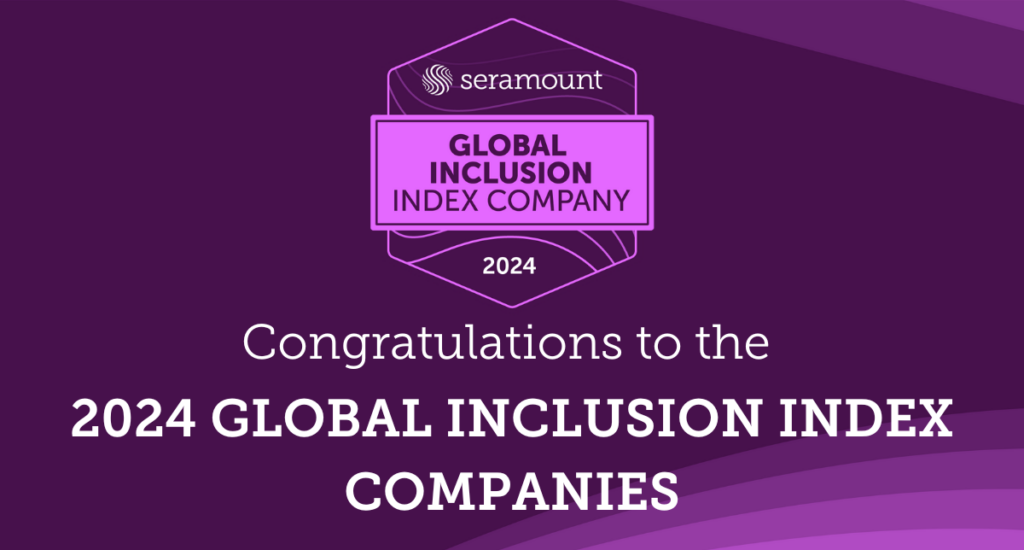
Seramount launched our first Global Inclusion Index in 2020 in 15 countries, assessing corporate efforts at hiring women, ability to measure other under-represented groups on a country-specific basis, creating inclusive cultures, and holding country leaders and managers accountable for results. Now we are continuing this effort and expanding.
For 2024, we increased to 26 countries:
Australia, Brazil, Canada, Chile, China, Colombia, Ecuador, France, Germany, Guatemala, India, Ireland, Israel, Italy, Japan, Mexico, Netherlands, Philippines, Portugal, Romania, Saudi Arabia, Singapore, South Korea, Spain, The United Arab Emirates, The United Kingdom
Global Inclusion Index Organizations
Australia


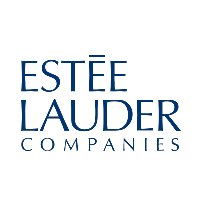


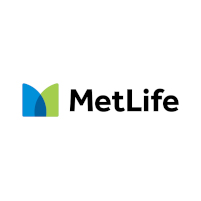

Brazil





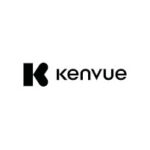



Canada











Chile

China


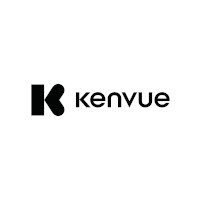



Colombia


France






Germany





Guatemala


India









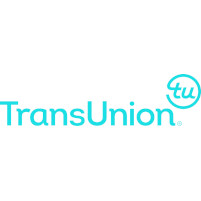

Ireland



Italy







Japan






Mexico




The Netherlands



The Philippines




Portugal


Romania



Singapore






South Korea


Spain





United Arab Emirates


United Kingdom













Key Findings
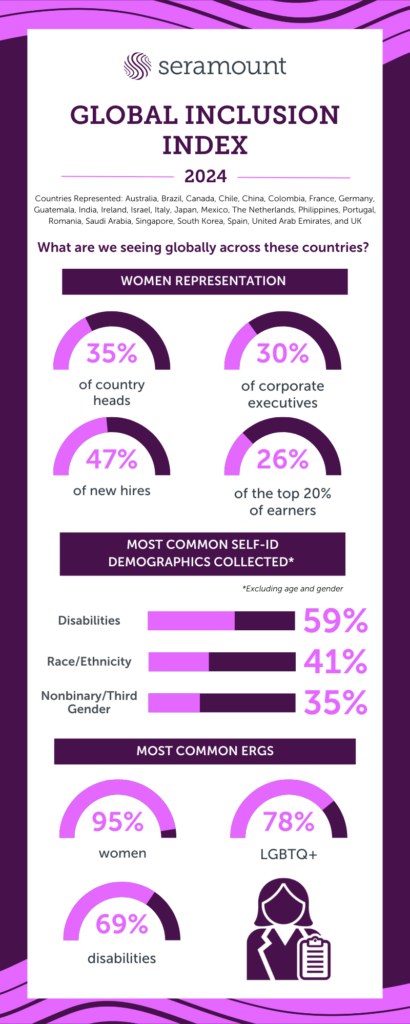
Methodology
In 2024, we increased Seramount’s Global Inclusion Index to 26 countries. Companies applied to the Global Inclusion Index in one or more countries. In total, 161 applications were submitted. To qualify as a Global Inclusion Index Organization in any particular country, a company must score at least 50%. Applications were scored across multiple factors including: corporate efforts at hiring women, ability to measure other under-represented groups on a country-specific basis, creating inclusive cultures, and holding country leaders and managers accountable for results.
Our questions focused on:
- Measurements of women’s progress (including demographic data at each level)
- Most common demographics captured in each country
- Recruitment efforts
- Mentoring and sponsorship and other leadership development efforts
- DEI structure at your company
- Employee Resource Groups
- Pay equity
- Supplier diversity
